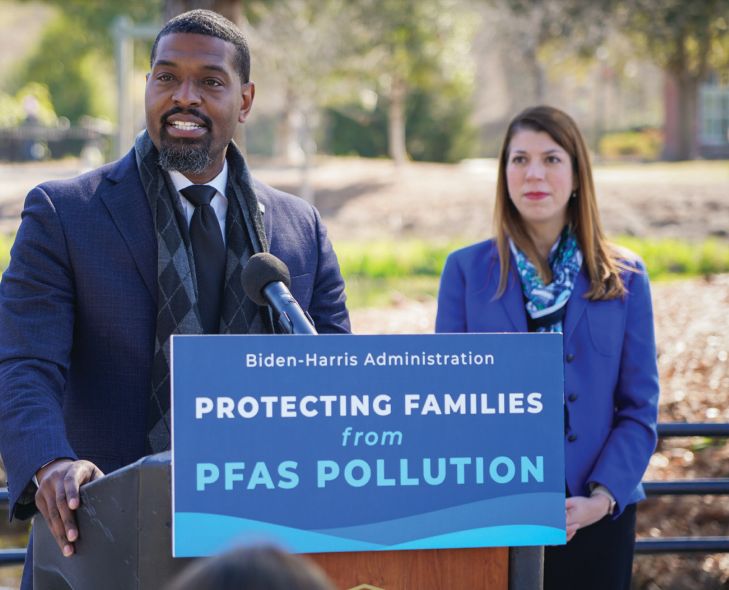On Wednesday, the U.S. Environmental Protection Agency issued non-binding health advisories on the presence of certain chemicals that do not break down. Yesterday, the environmental compliance specialist for the Albemarle County Service Authority told that entity’s Board of Directors that the municipal water supply is set up to filter out per- and polyfluoroalkyl substances.
But first, Tim Brown explained there are thousands of different chemical combinations that were created to make products that are water-resistant, heat-resistant, and grease-resistant.
“Every chemical is distinct by the fact that the element fluorine is a component of the chemical, and the carbon-fluorine chemical bond is a very very strong one,” Brown said. “What does that mean? It means this chemicals do not break down in the environment.”
Brown said health risks include liver failure, hormone imbalances, cancers, and suppression of immune systems.
“A lot of nasties in there potentially,” Brown said.
The EPA is currently promulgating new regulations to require monitoring and to seek to lower the acceptable level of PFAS compounds to near zero.
“It was almost borderline startling information,” Brown said.
Brown said the current acceptable standard is around 70 parts per trillion for PFAS and the new regulations could take that down.
“Now going down into the fractions of parts per trillion which is in essence at the parts per quadrillion level,” Brown said.
Brown said one issue will be that current test equipment may not be able to detect those levels. He said he felt the EPA advisories are intended to signal water producers across the country to take the issue seriously. He said the Rivanna Water and Sewer Authority have been testing for PFAS twice a year since 2019.
“Eighteen PFAS compounds were tested at all six of our treatment plants, both in the raw water and in the finished or treated water,” Brown said. “There were zero detections.”
Brown said the new standards will be announced in September to be effective in the fall of 2023. He said the ACSA and the RWSA will continue to monitor the situation.

Before you go: The time to write and research of this article is covered by paid subscribers to Charlottesville Community Engagement. In fact, this particular installment comes from the June 17, 2022 edition of the program. To ensure this research can be sustained, please consider becoming a paid subscriber or contributing monthly through Patreon.











